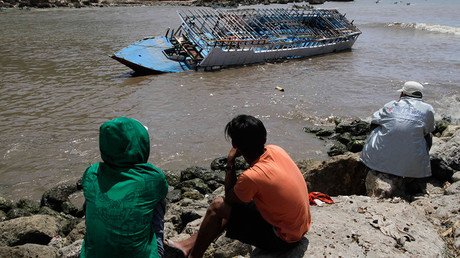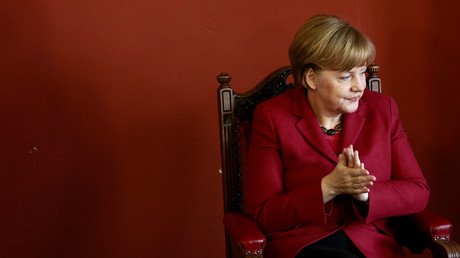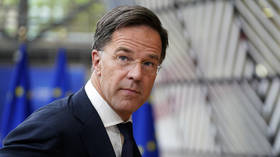Send them back to Africa: EU should intercept asylum seekers at sea, says German Interior Ministry
Germany’s Interior Ministry has allegedly hardened its refugee policy, with media quoting it as saying that the EU should intercept migrant boats trying to reach Europe from across the Mediterranean and send them back to North Africa.
“The elimination of the prospect of reaching the European coast could convince migrants to avoid embarking on the life-threatening and costly journey in the first place,” a spokeswoman for the Interior Ministry told German newspaper Welt am Sonntag.
The minister himself believes the European Union should intercept refugee boats at sea and return them to Africa, she said, noting that it would “save migrants from the life-threatening journey” and “remove the basis for people-smuggling organizations.”
The ministry’s proposal allegedly calls for migrants to be picked up in the Mediterranean and sent back to migrant camps in Tunisia, Egypt, or other North African states, instead of war-torn Libya, which is where most of them come from. They could then apply for asylum in Europe from these camps and, if granted approval, be taken to Europe safely, according to the Ministry, though it said the notion is merely a proposal so far.
If enacted, Germany’s refugee policy could become as strict as that of Australia, which allows virtually no asylum seekers to cross its borders and instead redirects them to a distribution camp on the Pacific island of Nauru. Moreover, Australian Prime Minister Malcolm Turnbull announced last week that asylum-seekers who arrive in Australia by boat will be banned from ever entering the country again, even as tourists, sparking a backlash from international human rights groups and asylum-seeker advocates, who claim that the Australian authorities are being too harsh in dealing with refugees.
The idea of sending migrants back to Africa has not been well received by Germany’s opposition.
“The Ministry of the Interior treats refugees as a contagious disease,” Green Party co-chair Katrin Goering-Eckardt told Welt am Sonntag. Bernd Riexinger, head of the leftist opposition Die Linke party, branded it “a humanitarian scandal and a further step toward elimination of the right to asylum.”
“The asylum check must take place in Germany, because the right to asylum also means the right to legal resources, that is, to lawyers, counseling centers, etc. The handling of refugees in Australia is absolutely unacceptable, and Germany and the EU must not be guided by it,” Riexinger stressed.
Over 2,200 migrants were rescued in the Mediterranean Sea just on Saturday, Italy’s coast guard reported. Meanwhile, the International Organization for Migration reported last week that at least 159,496 people had reached Italy by sea this year, and 4,220 had died in attempting to do so, which is almost 500 more than in the whole of 2015. Germany was beset with an influx of around 900,000 asylum seekers and migrants last year.
READ MORE: Merkel suggests Christmas carols, flute-playing in face of ‘Islam concerns’
German Chancellor Angela Merkel, who has been criticized for her open-door policy, has said that Germany needs to make a national effort to deport refugees that refuse asylum, while those granted asylum must be integrated into German society as soon as possible.















